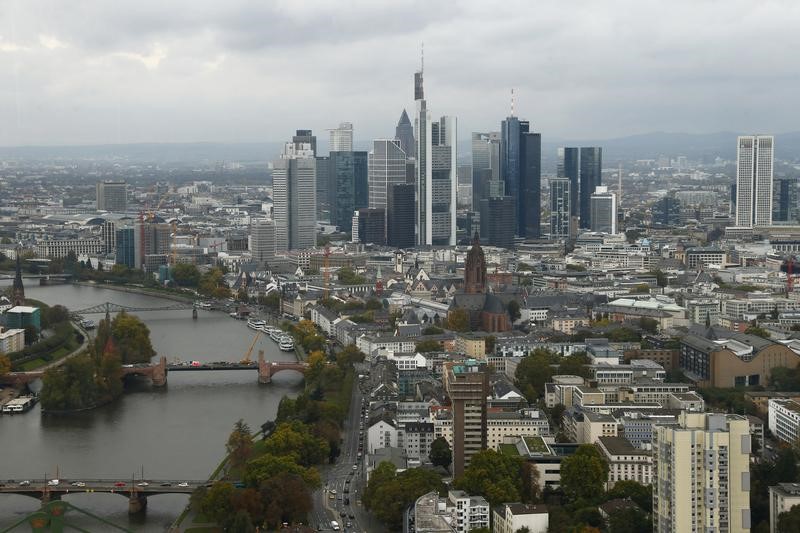By Michael Nienaber
BERLIN (Reuters) - German business morale continued to recover in July from its biggest decline in decades, with companies expecting Europe's largest economy to rebound from the coronavirus shock - as long as a second wave of infections is avoided.
The Ifo institute said on Monday its business climate index rose to 90.5 in July from an upwardly revised 86.3 in June. It was the third increase in a row and a higher reading than expected.
"The German economy is recovering step by step," Ifo President Clemens Fuest said, adding that companies were notably more satisfied with their current business situation.
The government hopes its stimulus package -- more than 130 billion euro ($152.05 billion), including a temporary VAT cut to boost domestic demand -- will help the economy return to a growth path.
The survey showed that consumers were starting to open their wallets while industrial activity was picking up slowly, Ifo economist Klaus Wohlrabe said.
The surprisingly strong Ifo figures suggested that the economy got off to a good start at the beginning of the third quarter. Wohlrabe confirmed a growth forecast of 6.9%.
Still, the economy is expected to plunge by double digits in the three months from April to June, when public life and economic activity came to a near halt because of the pandemic.
The Statistics Office will release preliminary gross domestic product growth data for the second quarter on Thursday.
KfW chief economist Fritzi Koehler-Geib warned it was too early to give the all-clear, despite the encouraging Ifo reading and the trend among other sentiment indicators.
"The pre-crisis level will remain a long way off for the foreseeable future, and the continuing fierce rage of the pandemic in large parts of the world is an enormous risk for Germany as an export nation," she said.
Commerzbank (DE:CBKG) economist Marco Wagner pointed to higher corporate debt, which was curtailing investment, and a tense job market, which was curbing private consumption. "In addition, a second wave of infection seems to be looming in Europe," Wagner warned.
Health Minister Jens Spahn said on Saturday that the government may introduce compulsory coronavirus testing for holidaymakers returning from high-risk destinations after the number of new infections in Germany hit a two-month high.
